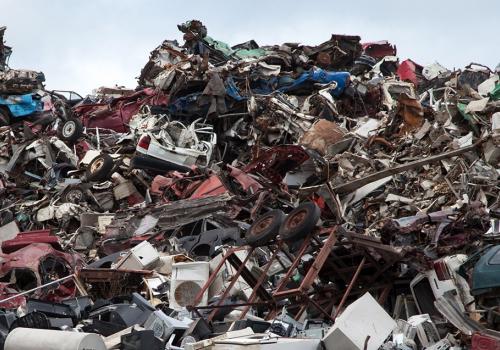Sri Lanka has banned the export of scrap iron, copper, aluminium, stainless steel, high carbon steel, brass, zinc and copper wires in bid to save them for domestic production, the cabinet of ministers had decided. Some scrap metal could be exported under a recommendation of the Industrial Development Board and ‘other related agencies’ the state information office said. Increasing regulations and licensing generally paves the way for corruption in the licensing authorities critics say. The export ban is being made to boost domestic production of industries that use the scrap as raw material, the cabinet was told. The export ban is implemented to depress the prices of scrap metal to below world market levels and deny the real price to collectors and give an effective subsidy to industries that use them including large steel companies. Lower prices may also discourage collection.
The possible price fall of scrap metal and likely future price moderation comes as metal containers are identified as a trigger of mosquito borne disease. Sri Lanka has high steel prices which critics say has made it more expensive for the society as a hold to build a house, may lead to scrimping on steel which lead to building collapses and make tourism and exports in general uncompetitive by raising construction costs.
